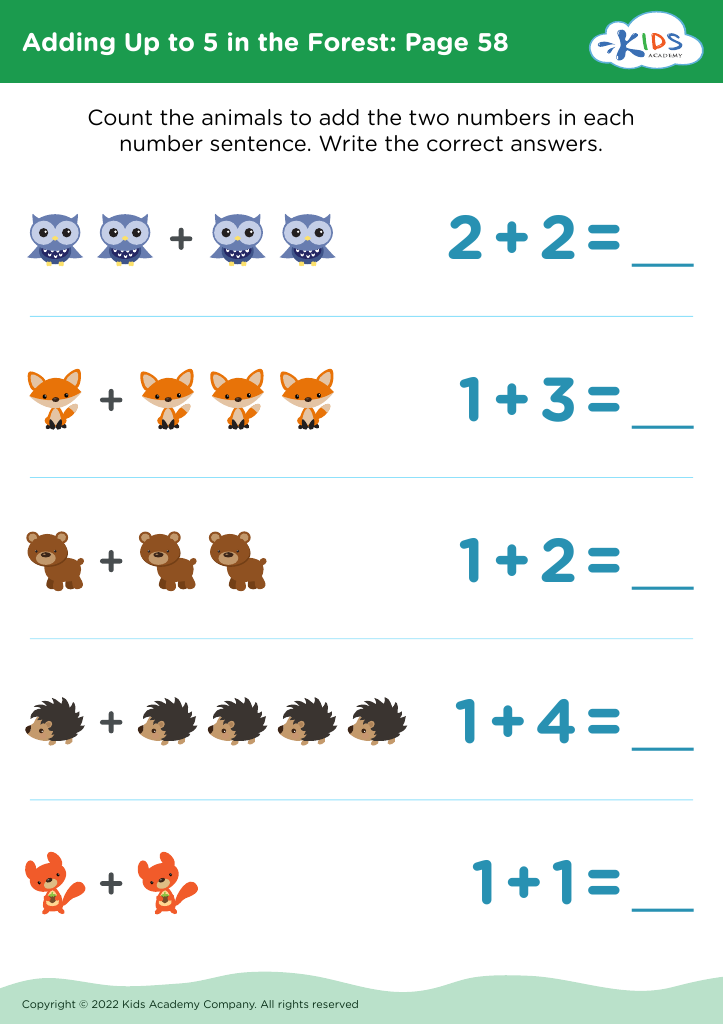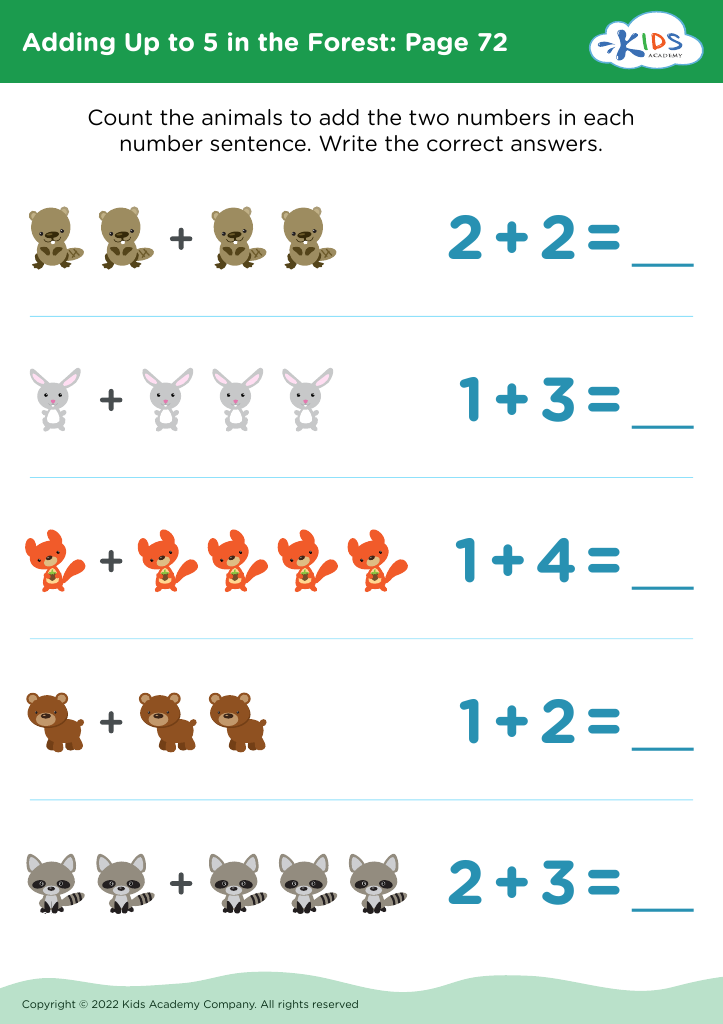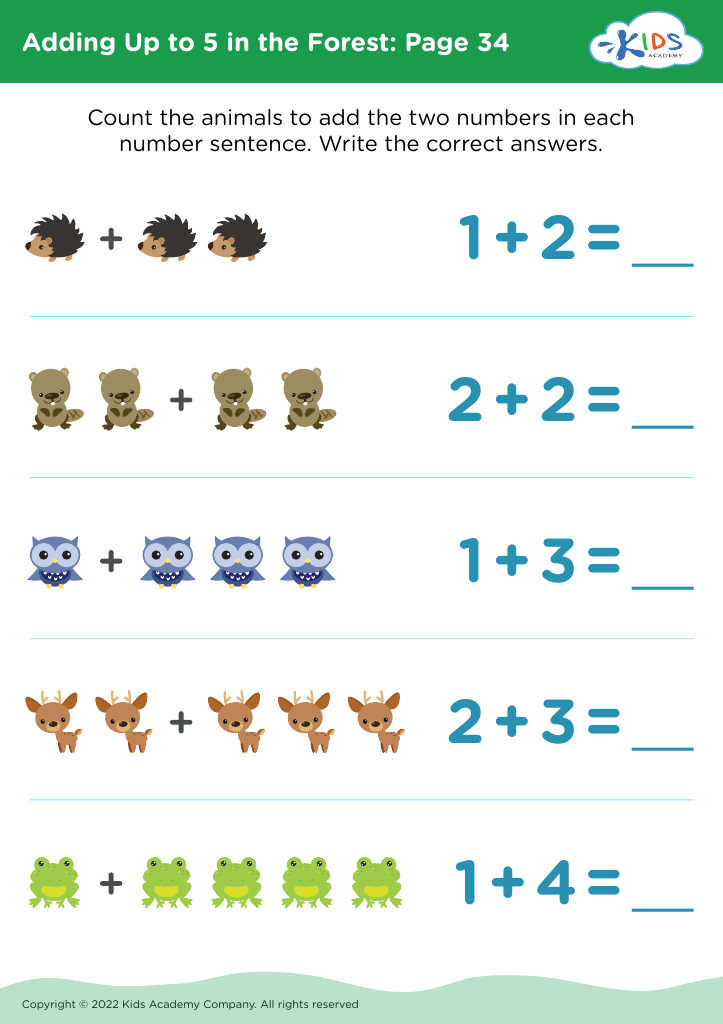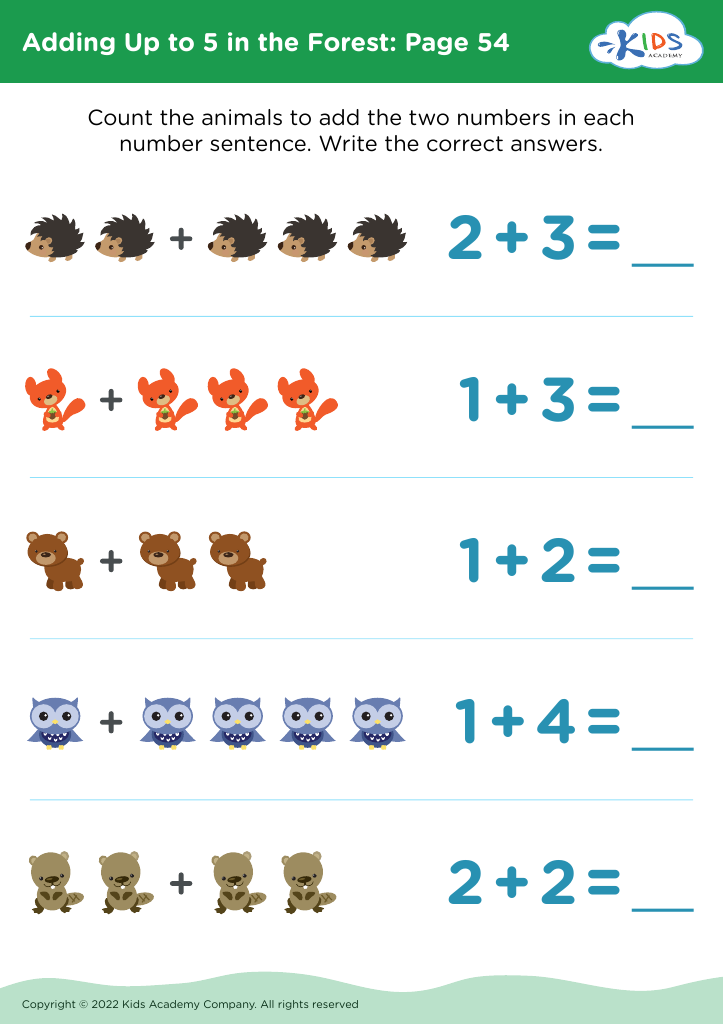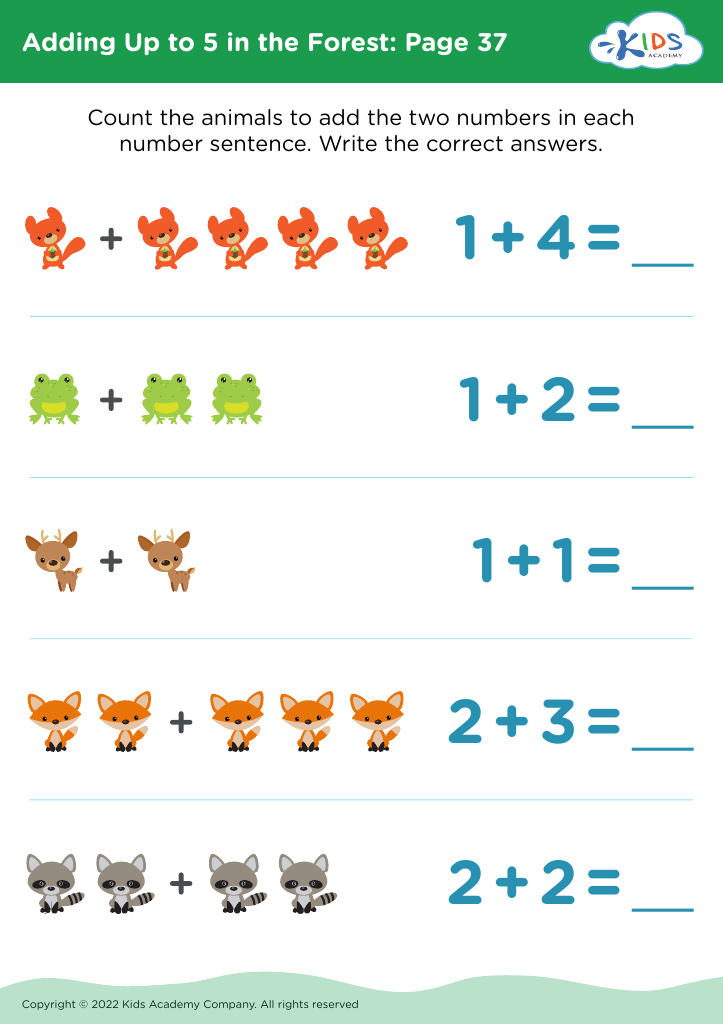Nature appreciation Worksheets for Ages 4-8
6 filtered results
-
From - To
Explore the wonders of the natural world with our Nature Appreciation Worksheets designed for children ages 4-8! These engaging, age-appropriate activities encourage young learners to observe, appreciate, and understand the environment around them. Each worksheet includes colorful illustrations and interactive tasks that inspire curiosity about plants, animals, and ecosystems. From identifying local wildlife to understanding the seasons, our resources foster a love for nature while developing essential skills in literacy, creativity, and critical thinking. Perfect for both classroom and home use, our worksheets make nature exploration fun and educational. Help cultivate a young child’s appreciation for our beautiful planet today!
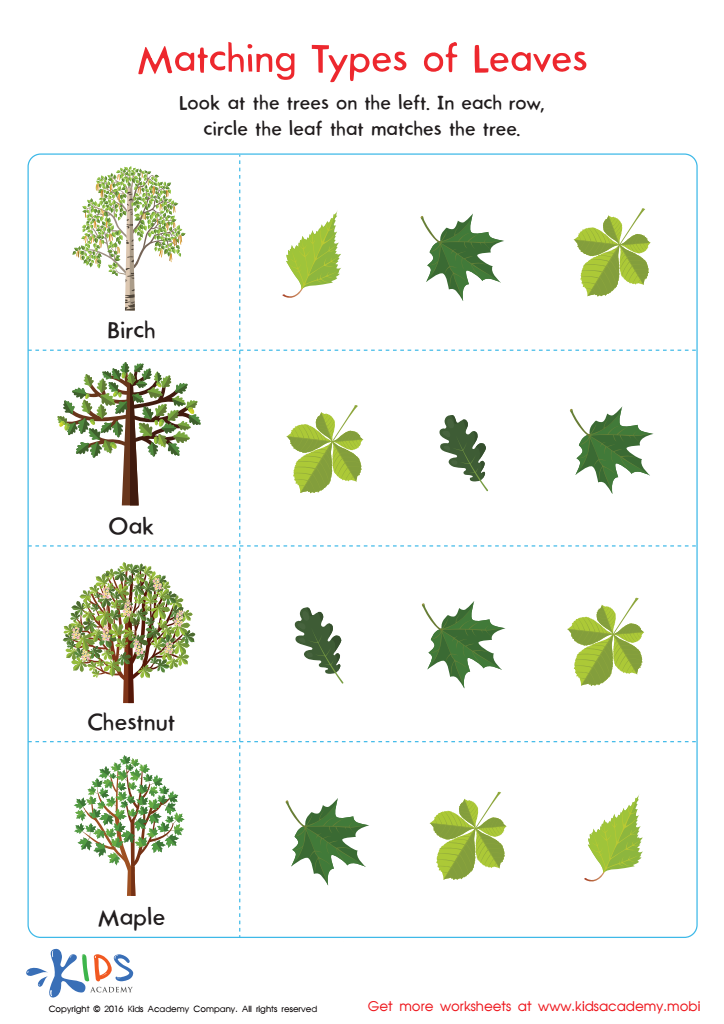

Matching Types of Leaves Printable
Nature appreciation is crucial for children aged 4-8 for several reasons. First and foremost, engaging with nature fosters a sense of curiosity and wonder about the world. This age is characterized by a natural inclination to explore, and immersing children in natural settings allows them to ask questions and make connections, which enhances cognitive development.
Furthermore, exposure to nature nurtures emotional well-being. It has been shown that outdoor play reduces stress and anxiety, promoting a sense of calm and happiness. Children learn to observe, reflect, and develop mindfulness—important skills for emotional intelligence.
Nature appreciation also encourages physical activity, which is vital for healthy growth and development. Outdoor activities promote gross motor skills while allowing children to experience the joy of movement.
Additionally, by fostering a love for nature, parents and teachers can instill a sense of responsibility towards the environment. Early experiences in nature can lead to lifelong conservation values.
In summary, encouraging nature appreciation among young children provides enriching developmental benefits, fosters emotional health, promotes active lifestyles, and nurtures respect for the environment—reasons enough for parents and teachers to prioritize nature experiences in their lives.
 Assign to My Students
Assign to My Students
